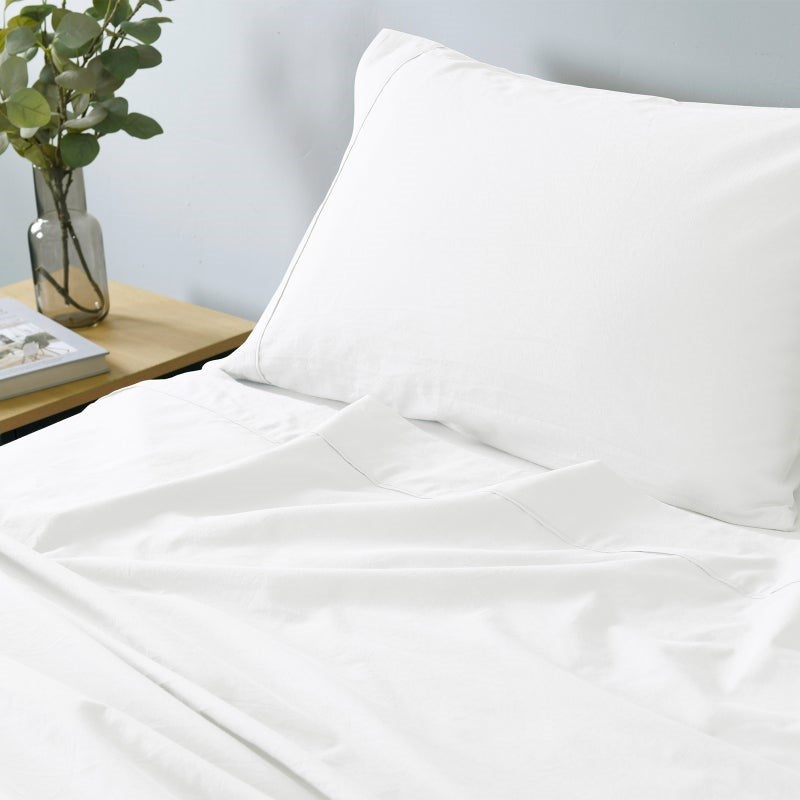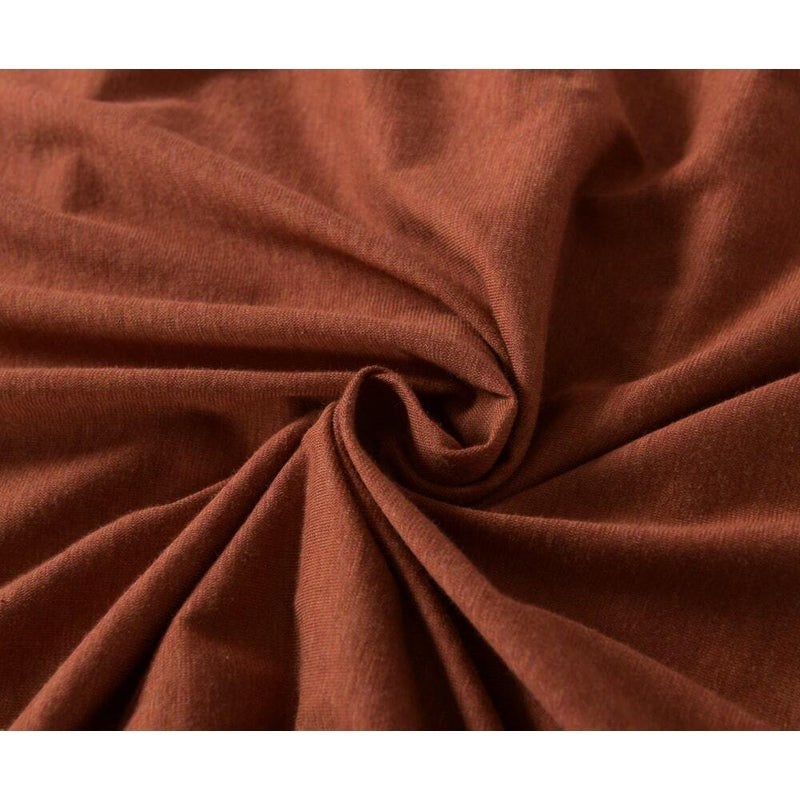There are a lot of household items that you use regularly. However, your bed sheets are used on a daily basis and require some care from time to time. Knowing when to wash your sheets and how to maintain them to ensure they last long is important.
Whether it’s regular washing or just getting rid of a small stain on your bed sheets, you need to know what to do in such a situation. We have the perfect remedy for you.

Removing stains from sheets
Dirt and grime are a common occurrence when you use sheets on a daily basis. While your bed sheets are constantly exposed to the dirt and dust in the environment, they are also in constant contact with your body.
The oils from your face and hair are bound to be transferred to the bed sheet. This is the reason why it is recommended to wash your bed sheets regularly. There is no official recommendation as to when you should wash them as it depends on your surroundings, health conditions, the season and what activities you do on the bed.
This leads to the much-awaited discussion about stains. It is normal to have stains on the bed sheet. Since it is used so regularly, at some point you would end up dropping something that creates a stain. However, every stain is different and requires a different kind of prewash care.
Bloodstains
These are some of the hardest stains to remove which is why one needs to act quick. It is easier to remove a fresh blood stain with soap and water. Normally, soap and cold water do the trick and you don’t have to do anything else. However, if the stain has set, you need to put in more work. Pouring some hydrogen peroxide directly on the stain is one of the best ways to get rid of it. Wait for at least thirty minutes before cleaning it up with a paper towel.
The normal instinct is to scrub the stain away with the hydrogen peroxide poured on it. However, scrubbing it would only weaken the fabric causing it to tear. Be gentle and wait it out. Furthermore, if you do not have hydrogen peroxide, white vinegar and club soda would do the job. It may take longer but the stain will eventually come off.
Ink
Getting rid of ink stains can be tricky and a pre-wash treatment is important in this case. Rubbing alcohol is your best friend when it comes to removing ink stains. The idea is to not directly dab on the rubbing alcohol but to draw it out. Stretch the stained portion of the sheet over a mug and pour some alcohol around the ink stain first. Then pour some of the rubbing alcohol on the stain itself. Ideally, this should draw out the ink and it should drip down into the mug.
Oil
Always use hot water for oil stains. The hot water will help break down the oil stain making it easier for your cleaning product to work on the stain removal. There are several stain removal products available in the market that you can use after the hot water soak. You can also use household items such as baking soda or white vinegar.
How to wash bed sheets

While the idea of washing bed sheets is very simple, we often forget a few important things. Every bed sheet material is different, so the washing process will also be different. Here are the things you should keep in mind when washing your sheets:-
Material
It is of utmost importance that you know what sort of material you are dealing with. Washing instructions for cotton sheets will be very different to silk sheets. Furthermore, the temperature of the water needs to be just right to avoid ruining your sheets. Linen and cotton can usually withstand a bit of tug and higher temperatures. Silk sheets need a delicate wash with cold water and preferably should be hand-washed for the first few times. Bamboo fibre cannot take high temperatures or harsh cleaners, hence a gentle wash is a way to go.
Pre-wash
Removing stains from sheets is easy if you spot the stain at the right time. However, if a stain goes unnoticed and sets on the bed sheet, the removal process can be quite hectic. This is why we suggest a pre-wash treatment for your sheets. Soaking your sheets overnight in cold water can solve a lot of problems. Sweat stains and odours due to the constant body contact with sheets can be removed if you soak your sheets before washing them. Additionally, you can add a bit of distilled vinegar to the soak for an extra clean result.
Always wash them together
Sheet sets need to be washed together. Don’t put in your bed sheet along with your towels and clothes. Your sheets need to be washed with pillowcases and that is it. This avoids any extra lint from other clothes getting stuck on your sheets. It is also quite efficient since you end up washing and drying your entire sheet set at once. Please note that your sheets and pillowcases need to be put into the washing machine inside out.
Post-wash
If there is a pre-wash ritual, there has to be a post-wash ritual. Understanding the drying process of the sheet ensures its durability. During summer, it is better for the sheets to dry naturally. Give the sheets a vigorous shake once out of the washing machine and then hang them up on a drying line. Winter times require some artificial heat, so a dryer would be handy. However, don’t dry them completely in the dryer as the steam can eventually weaken the fibres of the fabric. Always hang your sheets up.
Wrinkled Sheets
Even after drying on a clothesline, your sheets will have a few wrinkles. Normally we would suggest against ironing the sheets because it is not really required. The sheets straighten out with your body heat. However, it is your choice and if you want to iron your sheets go ahead! Just turn them inside out while ironing.
Storage
Storing your sheets once they are completely dry is important. Any moisture within the sheet can damage the fibres over time. Make sure that your sheets are dry and don’t cover them up in plastic. Let your sheets breathe.
Bleach is not the solution
If you think pouring a cup of bleach over sheet stains will clean it up, you are mistaken. It is true that bleach is effective when it comes to stain removal but it removes a lot more along with the stain. Bleach can cause the colour of your sheet to erode. Furthermore, bleach is a very strong chemical that can damage the fibres of the material. This can lead to your sheets tearing up with just one wash of bleach. No matter how bad the stain is, do not use bleach on your bed sheets.
Handle with care
If you are still questioning how often should you wash sheets then make a note of how you use your sheets. Regular use of your bed sheets will result in sweat, dirt, and grime build-up, and would require cleaning every few weeks. Additionally, if you have a skin condition, we recommend cleaning your bed sheets on a weekly basis. It is better to be safe than sorry.
Your bed sheets and pillowcases require a lot of care. We suggest taking your time with the cleaning and storage of your sheets. Nobody likes sheets that feel rough to the touch or faded sheets.


